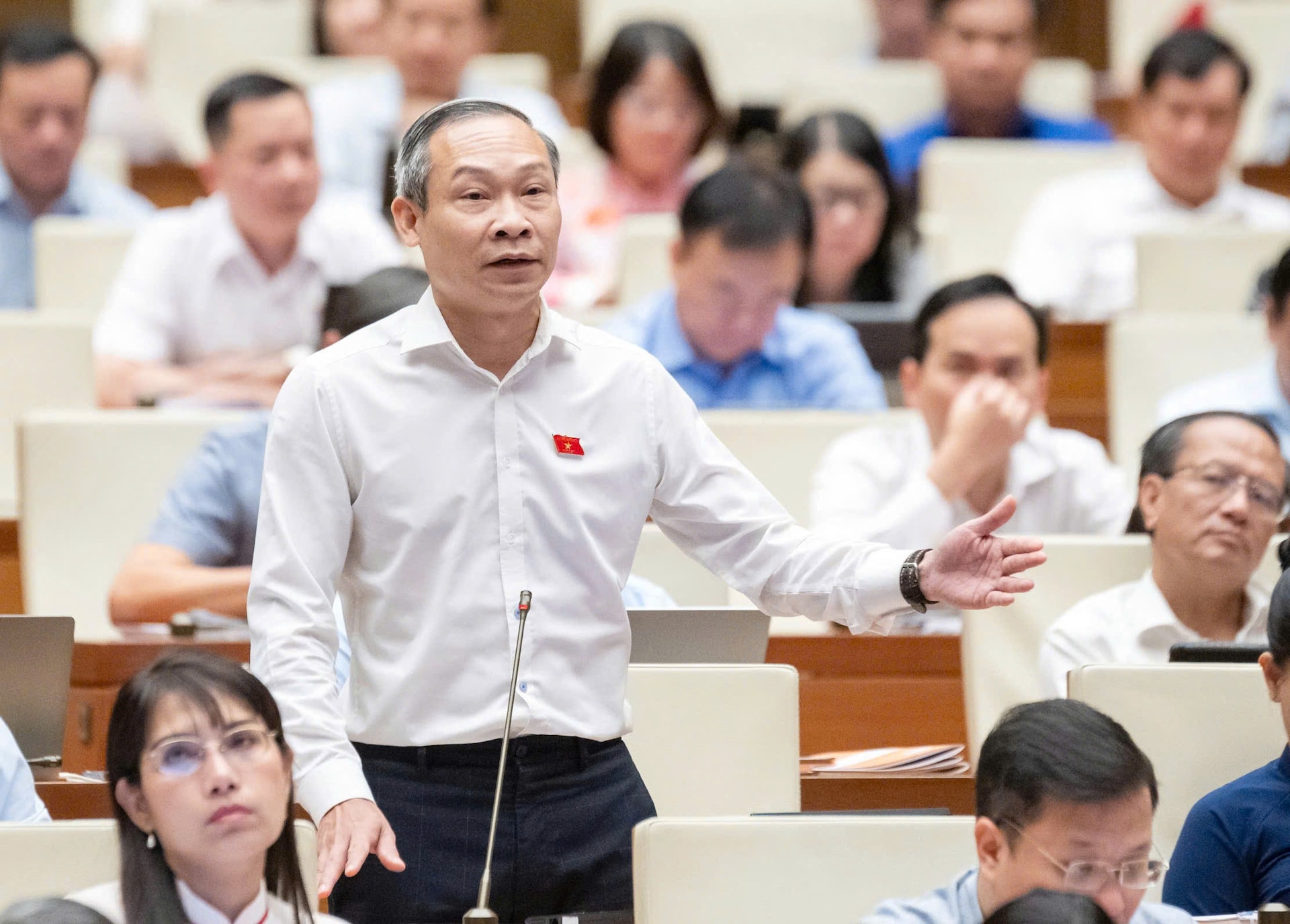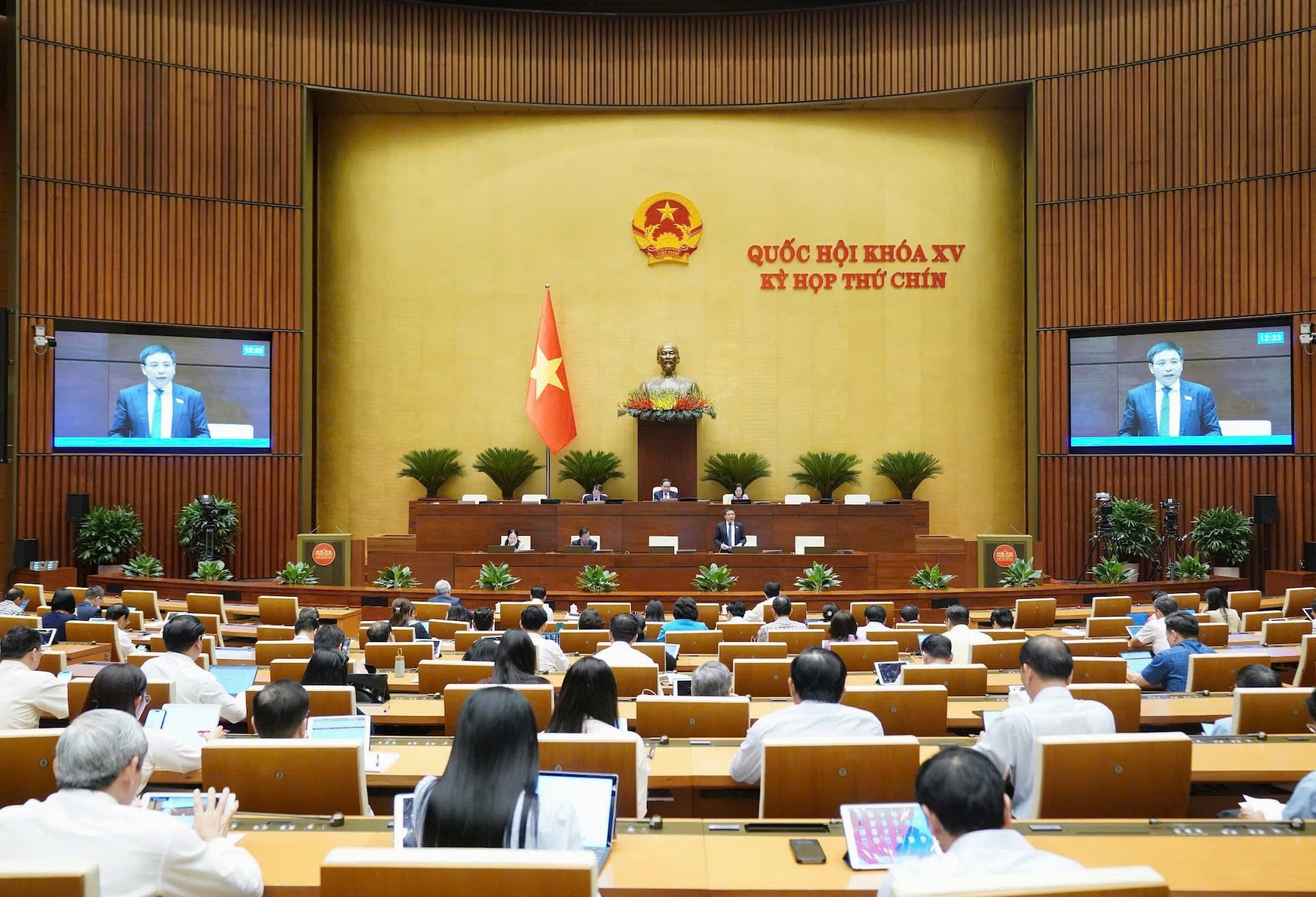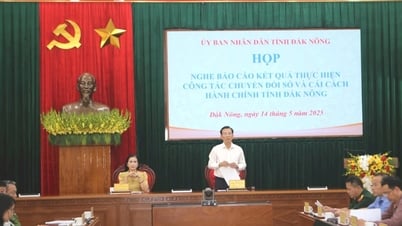Corporate income tax exemption for technology development and innovation funding
Some National Assembly deputies suggested considering adding regulations on income exempted from corporate income tax to implement Resolution No. 57-NQ/TW of the Politburo appropriately and effectively.
According to the National Assembly Standing Committee, the draft Law on Corporate Income Tax (amended) has added the following provisions: Income from innovation and digital transformation; funding received for technology development, innovation and digital transformation activities are income exempted from corporate income tax.
Particularly for grants for technology development and innovation, while the enterprise receiving the grant is exempted from tax on the income received, the draft law also adds a provision that the enterprise giving the grant can deduct this grant from expenses when calculating corporate income tax. Thus, the tax exemption and reduction are applied to both the enterprise giving the grant and the enterprise receiving the grant.
Delegate Phan Duc Hieu (National Assembly delegation of Thai Binh province) speaks at the discussion on the draft Law on Corporate Income Tax (amended). Photo: TRONG HAI |
The Government proposes to allow corporate income tax exemption for funding received for use in technology development, innovation and digital transformation regardless of whether the donor and recipient enterprises are affiliated or not, in order to create a source of sufficient resources for the recipient enterprises to conduct scientific and technological research and development.
Along with that, businesses are required to properly use the funding; in case businesses do not use it for the right purpose for technology development, innovation and digital transformation activities, they will be subject to corporate income tax and penalties according to the provisions of law.
However, the auditing agency is concerned that funding for technology development, innovation, and digital transformation is often very large, wide-ranging, and currently lacks specific legal regulations, especially in the fields of innovation and digital transformation, making market-based pricing in these fields difficult to implement. This provision carries the risk of being exploited to transfer profits, transfer pricing, and tax evasion when the donor and recipient enterprises are related parties.
In the spirit of implementing Resolution No. 57-NQ/TW, the National Assembly Standing Committee reports to the National Assembly for consideration and supplementation of regulations allowing exemption of corporate income tax applicable to all grants regardless of whether the grantor and recipient have affiliated relationships or not as proposed by the Government. At the same time, the National Assembly Standing Committee requests the Government to issue all necessary regulations and take responsibility for organizing implementation, ensuring the goal of combating transfer pricing and profit transfer between affiliated parties, avoiding policy exploitation.
Discussing this content, delegate Pham Van Hoa (Dong Thap delegation) emphasized that science, technology development and digital transformation are important fields, so tax exemption for funding for these activities is appropriate, but it is also necessary to prevent businesses from taking advantage of preferential policies to evade taxes and commit fraud.
Delegate Phan Duc Hieu (Thai Binh delegation) suggested that it is necessary to immediately institutionalize into the draft law the contents of Resolution 68-NQ/TW on private economic development, including preferential policies and tax support such as tax exemption and reduction for small and medium enterprises in the first 3 years of establishment, start-up enterprises, creation books, income from transferring shares, capital contributions to creative start-up enterprises, etc.
Some National Assembly deputies proposed that the law take effect from October 1, 2025 instead of January 1, 2026.
Tax incentives create conditions for the press to carry out political and social tasks.
According to current regulations, income of press agencies from print newspaper activities, including advertising on print newspapers, is subject to a corporate income tax rate of 10% throughout the entire period of operation; for other press activities, the general tax rate is 20%.
According to the National Assembly Standing Committee, in the context that press agencies are having to reorganize and rearrange according to the Party and State's policies and are public service units that are not yet fully autonomous, the press's revenue mainly depends on advertising, but with the development of technology, especially social media, the press's revenue from advertising tends to decrease. In order to demonstrate the Party and State's support for the activities of press agencies, on the basis of agreeing with the proposal of the drafting agency, the National Assembly Standing Committee has accepted and revised the draft law in the direction of applying a uniform preferential tax rate of 10% to all types of press, similar to the preferential policy currently applied to printed newspapers.
View of the meeting. Photo: TRONG HAI |
Discussing this content, delegate Thach Phuoc Binh (Tra Vinh delegation) emphasized that the draft law has included the press, including newspaper advertising, in the list of subjects eligible for corporate income tax incentives. This is an important step forward that provides strategic support for the Vietnamese press in the context of innovation, digital transformation, and market challenges. Adding the press to the list of tax incentives helps reduce financial pressure, creating conditions for press agencies to continue to maintain their political and social tasks.
According to delegate Thach Phuoc Binh, the press is not simply a business but also performs the functions of information, education, orienting public opinion, policy criticism, and plays an important role in political stability and cultural development. Tax incentives are a form of indirect support from the State for public service activities and are consistent with the nature of revolutionary journalism.
Financial resources from tax reduction can be reinvested by press agencies in technology infrastructure, upgrading content management systems, digitizing content, and training staff, thereby promoting quality improvement, content, and competitiveness with social media and cross-border platforms.
Delegate Thach Phuoc Binh also suggested that it is necessary to clearly define the scope of application for press agencies licensed to operate under the Press Law, to avoid exploitation by disguised media organizations. Incentives should be linked to the effectiveness of social activities, control criteria should be set, and there should be a fund to support innovation in the press...
MANH HUNG
* Please visit the Politics section to see related news and articles.
Source: https://baodaknong.vn/thong-nhat-muc-thue-suat-uu-dai-10-doi-voi-tat-ca-cac-loai-hinh-bao-chi-252279.html






![[Photo] Prime Minister Pham Minh Chinh chairs conference on anti-smuggling, trade fraud, and counterfeit goods](https://vphoto.vietnam.vn/thumb/1200x675/vietnam/resource/IMAGE/2025/5/14/6cd67667e99e4248b7d4f587fd21e37c)
















































































Comment (0)